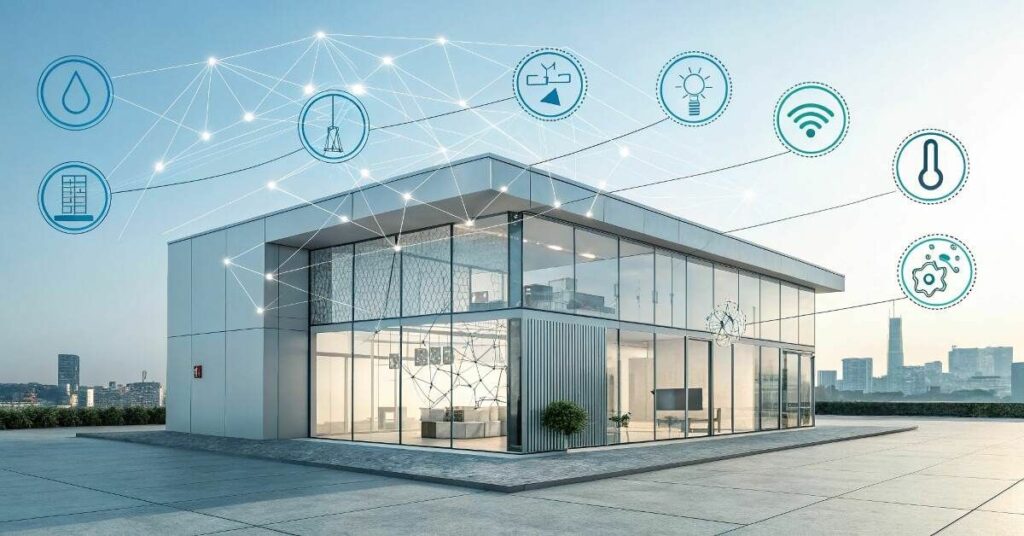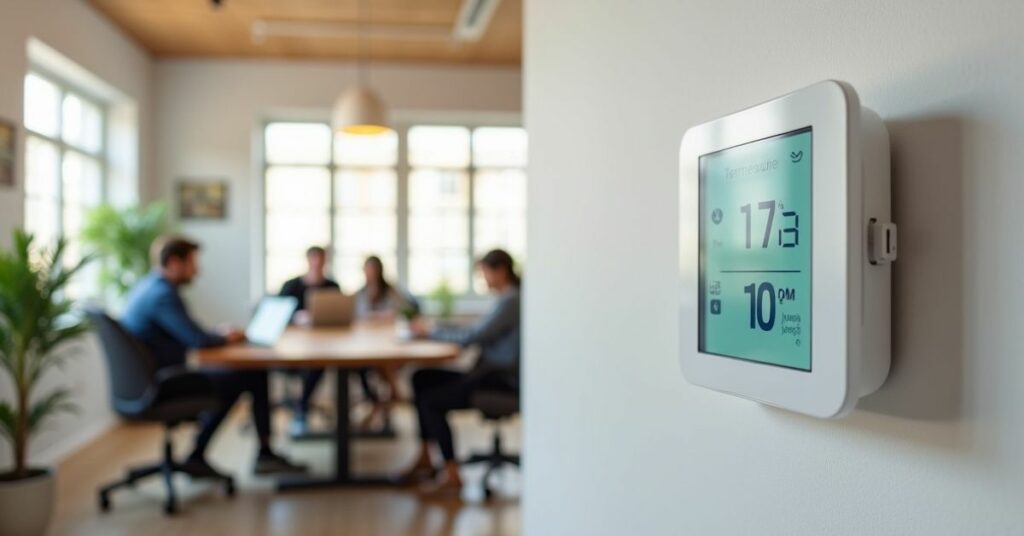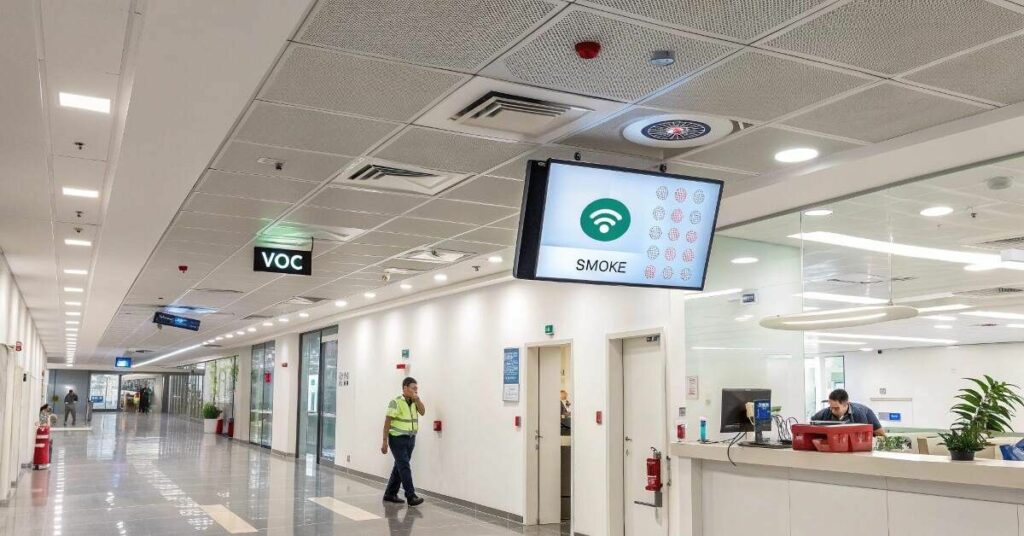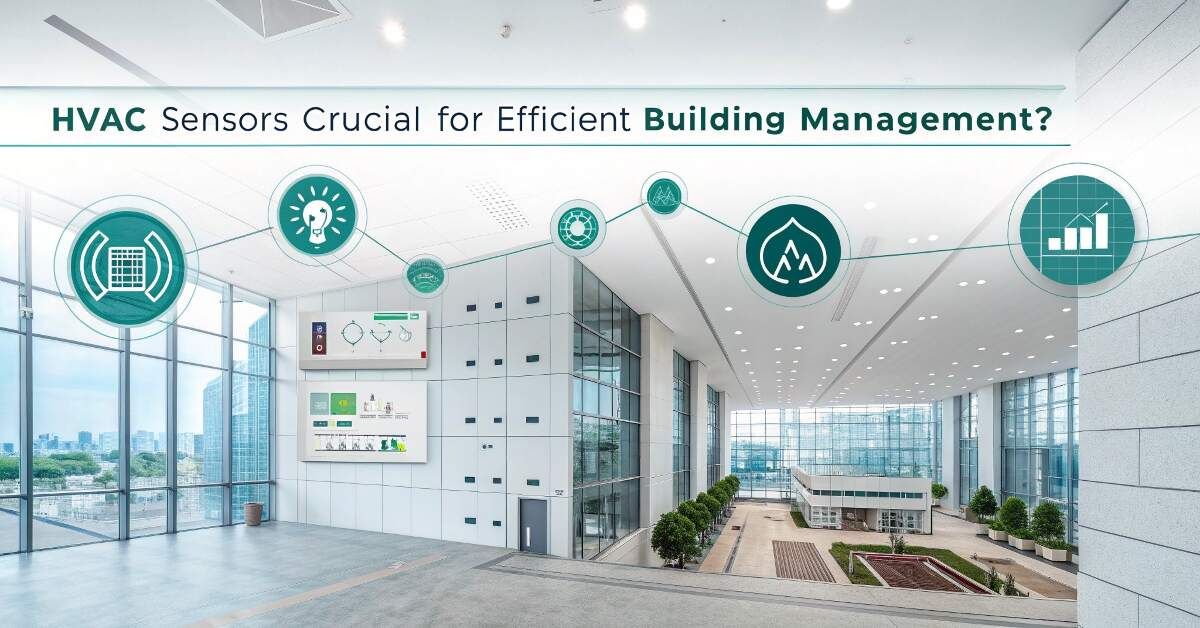The use of HVAC sensors can greatly reduce energy bills. They are able to monitor temperature, humidity and airflow as they happen. They save energy right away by using heating and cooling only as needed. As a result, you’ll spend less on utilities and put less wear on your HVAC equipment. If you save even a little over time, it can end up making a big difference.
The air we breathe should always be clean and fresh. HVAC sensors can help improve the air in your home by noticing pollutants, CO2 and moisture. The right data allows ventilation to start at the best time. As a result, the space is healthier and more comfortable for all those living there.
If every part of the building is coordinated, the efficiency rises. Building performance is improved when HVAC sensors provide accurate data to the systems. You can set up your lighting, air conditioning and occupancy to work together flawlessly. The result? Better operations, less downtime and an easier everyday experience.
Table of Contents
ToggleSmarter Buildings Start with Smarter Sensors

Real-time data from HVAC sensors is what sets everything apart. They are set to watch over temperature, airflow and humidity all the time. There’s no need to guess or waste energy because the system adjusts itself automatically. Every area is supplied with just the right things, at the right time. That’s the reason smart buildings are both efficient and comfortable.
These sensors also keep up with the pace of everyday life. When people come and go, or the weather shifts, systems respond instantly. No more blasting cold air into an empty room. Instead, the building adapts in real time, saving energy while keeping spaces just right. That’s the power of truly responsive technology.
Temperature Sensors Keep Comfort Consistent

The smart sensors watch over the temperature inside the house. They ensure that your body temperature stays at its best level all the time. In winter, rooms are warm and in summer, they are cool. There are no sharp changes or guessing involved—just consistent comfort you can notice.
They prevent your computer from working overtime. Maintaining temperatures that are too high or too low wastes money and energy. With the help of temperature sensors, we can manage each and every degree.
Here’s how they help:
- Prevents your device from using too much energy at once
- Makes certain that every room is at the same temperature
- Decreases the amount of wear and tear on your HVAC units
- Supports lower energy bills year-round
- Improves comfort in every corner of the building
Humidity Sensors Protect Health and Materials
Should the humidity in your home be too high or too low, the sensors will respond immediately. They cause the HVAC system to respond with changes automatically. The result is that humidity levels stay even all year long. So, you’ll enjoy clean air and consistent comfort inside your home.
Having just the right amount of humidity helps keep your belongings safe. Thanks to these sensors, mold can be prevented from ever forming. They prevent electronics, furniture and walls from getting damaged by moisture. Proper humidity control guarantees both good living conditions and secure buildings.
CO2 Sensors Maintain Air Quality and Alert for Risks
When carbon dioxide levels start to rise, CO2 sensors begin working. They make the system quickly bring in outside air. It keeps your home’s air fresh and maintains a good level of oxygen. Checking indoor air on a regular basis helps you breathe clean, safe air.
Having clean air really helps. Clearer thinking, a better mood and fewer complaints are what people experience. Health problems reduce and work efficiency increases. Having fresh air in offices, classrooms and stores helps everyone stay at their best.
Occupancy Sensors Tailor HVAC to Real Usage
They monitor both the times and places that people are inside a building. Rooms that get crowded or become empty adjust their airflow and temperature accordingly. The system works right away, so your room is heated or cooled only when it’s needed. It is clever, easy to use and wastes less.
You won’t need to blast heat or cold air into places you aren’t using anymore. Areas that are not used get ignored, but the busiest zones receive the correct maintenance. This saves energy and money without you having to do anything.
Pressure Sensors Ensure System Efficiency
The ductwork is always being checked by pressure sensors. They keep an eye on airflow to notice if there are any leaks, blockages or clogged filters right away. When something is wrong, the system is able to detect it. There will be quicker fixes and less unexpected problems.
If there is not enough or too much pressure, things won’t work correctly. The air is distributed evenly, rooms are always comfortable and the equipment lasts for a longer time. Because of these sensors, HVAC systems can function efficiently.
VOC and Smoke Sensors Enhance Safety and Awareness

They find chemicals and smoke in the air before they cause serious harm. They notice issues right away and cause alarms or ventilation to be turned on. Being able to act quickly helps save both lives and properties. Being quick is essential when everything depends on how fast you act.
The better we can detect issues, the safer we will be. A response from emergency teams is faster and the building’s systems react immediately. Smoke and VOC sensors make your home safer and more secure.
Here’s what they help with:
Benefit | Impact |
Early chemical detection | Prevents health hazards |
Smoke alerts | Reduces fire risks |
Faster emergency response | Limits damage and improves safety |
Compliance support | Meets building and safety regulations |
Integration Leads to Smarter Energy Decisions
Sensors that are connected share information among themselves. Because of this, administration can be centralized and automation runs smoothly. The systems update each other as they go, making changes instantly. As a result, the building operates well with little work required.
When we have better information, issues are found sooner. You address problems before they increase your expenses. Because of them, making smart updates to your house is simpler and produces better results. Integration makes data useful which saves both money and energy.
FAQ’s
How do HVAC sensors improve building efficiency?
These sensors allow HVAC systems to adjust temperature, airflow and air quality instantly which helps cut energy use and boost the system’s performance.
Why is it important to monitor indoor humidity?
Humidity sensors ensure mold will not grow, help save the building materials and lead to a healthier indoor environment.
What role do occupancy sensors play in energy savings?
They notice when spaces are occupied and adjust the HVAC accordingly, so extra energy isn’t wasted.
Conclusion
Picking the right HVAC sensors is very important. They reduce energy use, make the environment more comfortable and benefit health. The use of smart sensors means buildings function better and become less expensive to maintain.
Besides, these sensors help identify issues at an early stage. They maintain healthy air quality and ensure the systems are level. All in all, purchasing HVAC sensors helps make a building safer, greener and more efficient.

